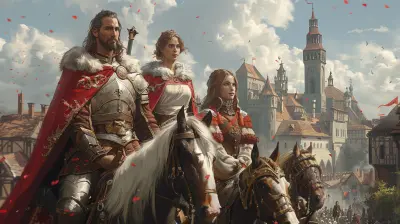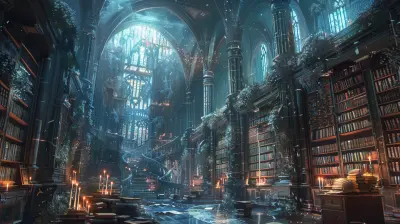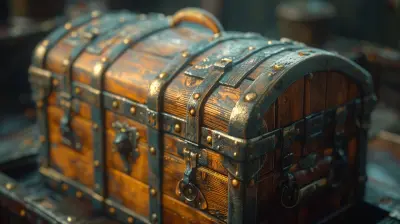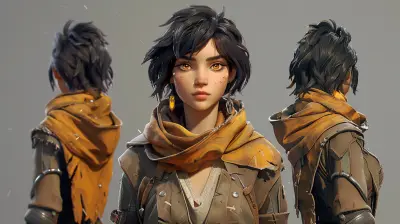Unleashing Chaos: How Open World Games Encourage Player Creativity
22 May 2025
Open world games have come a long way, haven’t they? They’ve grown from pixelated playgrounds with limited possibilities to sprawling digital universes teeming with endless opportunities. But here’s the thing—open world games aren’t just about ticking off quests, chasing collectibles, or defeating big bad bosses. No, there’s something far more profound bubbling beneath their surface. These sandbox-style experiences have become breeding grounds for creativity.
Whether you're crafting a quirky solution to a problem, building an empire from scratch, or just seeing how far you can push the limits of the game’s physics engine, open world games give you the tools to let your imagination run wild. Let's break it down and take a closer look at how these games unleash chaos in the best possible way, sparking endless creativity in players worldwide. 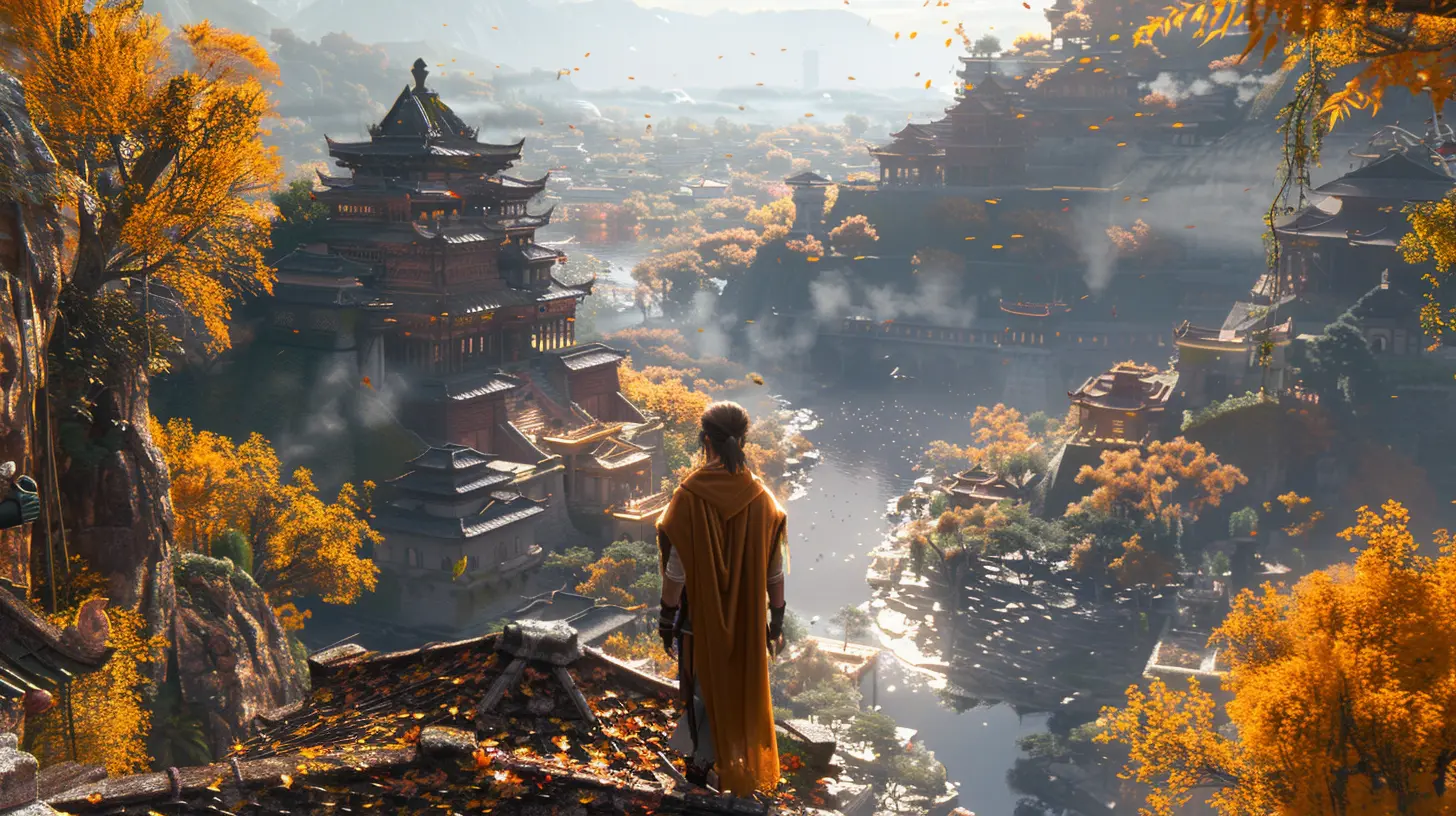
Why Open World Games Are the Ultimate Sandboxes
Think of open world games like a giant Lego set, but on steroids. Sure, there’s often a story to follow or objectives to meet, but no one’s breathing down your neck to do things "their way." From the moment you step into these virtual worlds, the controls are handed over to you. Want to follow the plot? Go for it. Want to ignore the main quest and try to ride a dragon off a cliff? Knock yourself out!This level of freedom is what sets open world games apart. It’s not just about completing missions; it’s about how you decide to complete them—or if you even bother to do them. These games aren’t just offering you a to-do list; they’re offering you a toolbox.
Breaking the Rules (Without Actually Breaking Them)
You know that rush you feel when you discover a clever shortcut or an unintended mechanic? Open world games are practically designed for this. Games like The Legend of Zelda: Breath of the Wild encourage you to think outside the box—or better yet, blow up the box entirely.For instance, in Breath of the Wild, you could solve a puzzle the "intended" way, sure. Or, you could strap together a few metal objects, zap them with lightning, and watch as the current solves the puzzle for you. The developers built a world that feels alive, where physics and logic actually matter, and then handed it to players to see what kind of chaos they’d unleash. And boy, did we deliver.
Moments like these don’t just make players feel clever—they make them feel like co-creators. It’s as if the game is saying, “Hey, nice one! I didn’t think of that, but it works.” 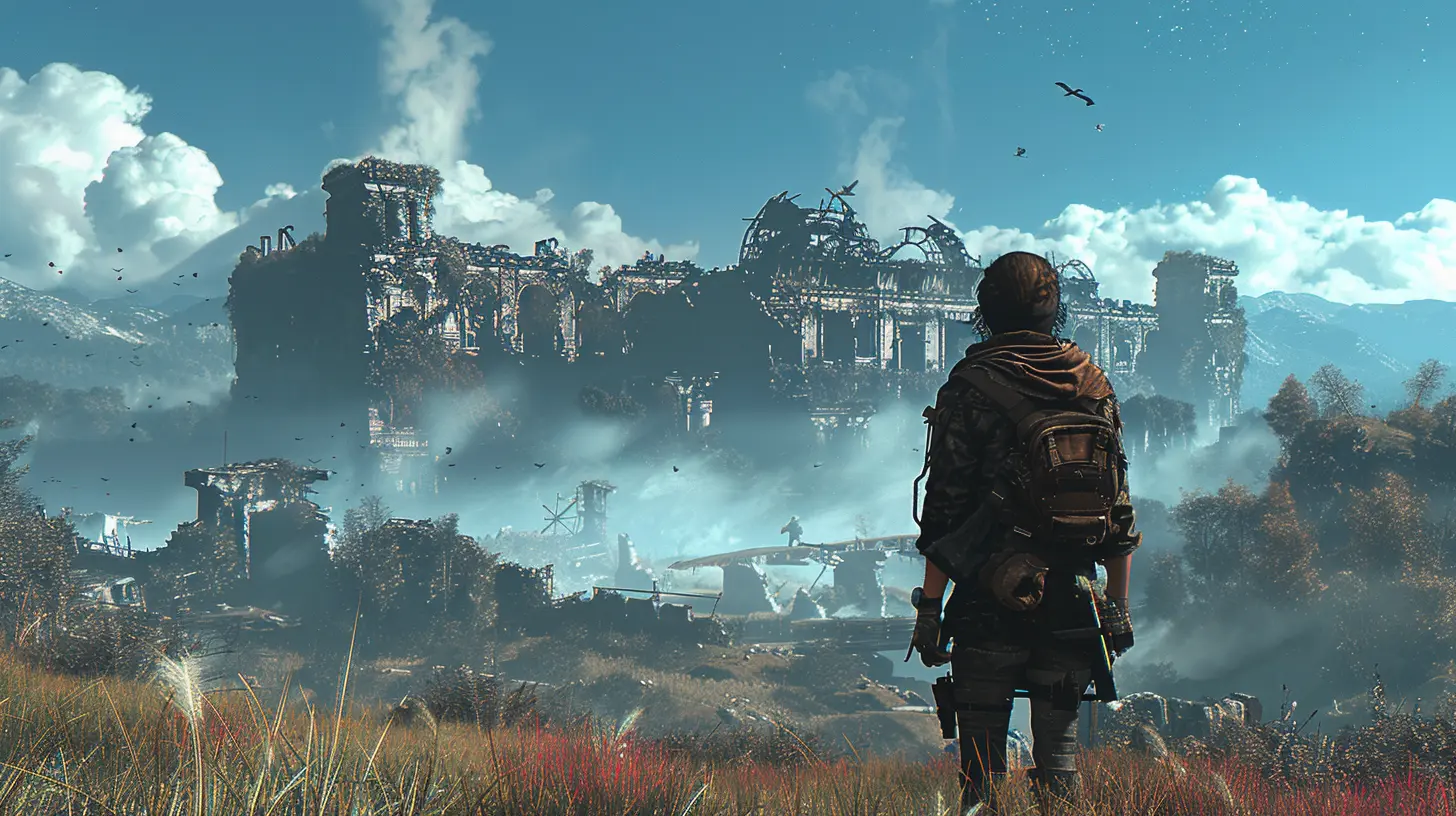
Crafting Unique Stories
Let’s face it: open world games are like giant storytelling machines, but not in the way you might think. These games rarely lock you into a single narrative. Instead, they serve as a framework, giving you the freedom to craft your own adventures and experiences.Take Red Dead Redemption 2, for example. Sure, it has an emotional, gripping story about loyalty, redemption, and survival. But the real magic happens when you start to stray off the beaten path.
Maybe you decide to spend hours fishing by the lake, bonding with your horse, or helping random strangers in the wilderness. Maybe you try to steal a train, only to hilariously fail and end up fleeing from half the sheriffs in the region. These unscripted moments become your story—one that’s uniquely yours and completely different from anyone else’s experience.
That’s the beauty of open world games: no two players walk away with the same tale.
Chaos Is Part of the Fun
Here’s a question: Is it still "chaos" if the chaos is tucked neatly into the design? Developers of open world games seem to have a secret love affair with unpredictability. They build worlds where something is always happening, whether you’re prepared for it or not.Games like Skyrim thrive on these unpredictable moments. You might be picking flowers by a peaceful stream, only for a dragon to suddenly swoop down and torch everything in sight. Or maybe you try to steal a cheese wheel, and before you know it, the entire town is chasing you. These moments of chaos create a domino effect, triggering a chain of events that are often hilarious, terrifying, or downright bizarre.
But here’s the kicker: These chaotic moments force players to think on their feet. They challenge you to adapt and improvise, which is just another form of creativity. After all, in real life, some of the best ideas come from dealing with unexpected situations, right? 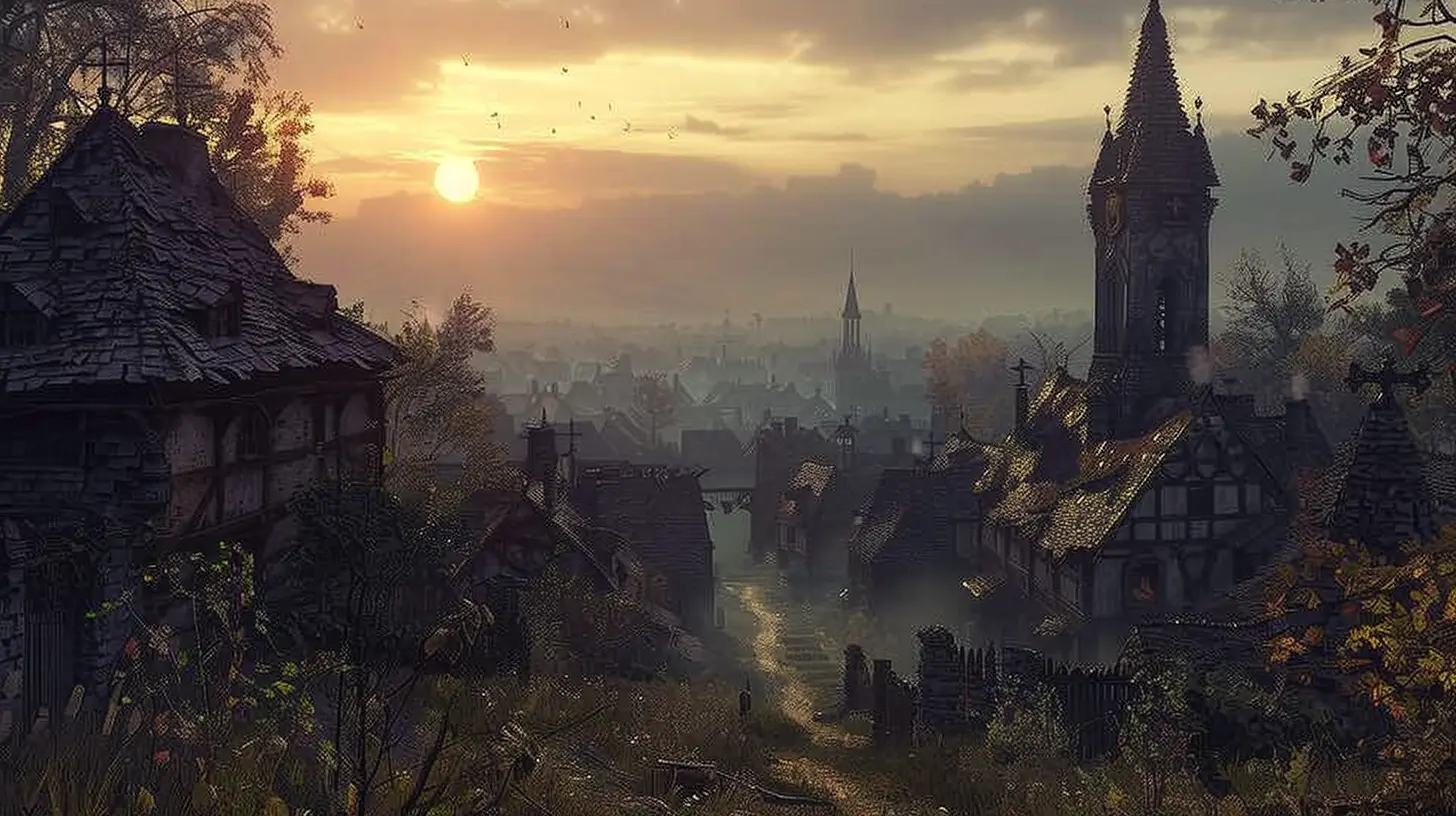
The Joy of Breaking the Game
Let’s talk about pushing boundaries. If you’ve ever played an open world game, you’ve probably tried something ridiculous just to see if the game would let you get away with it. And you know what? That’s part of the fun.In games like Grand Theft Auto V, players have spent countless hours trying to jump cars off impossible ramps, create elaborate in-game stunts, or see just how many police chases they can survive.
These aren’t random acts of chaos—they’re acts of creativity. Players are testing the limits of the game’s systems, bending them in ways the developers probably didn’t even anticipate. And here’s the thing: when a game’s systems hold up under this kind of pressure, it becomes a playground for innovation.
It’s almost like the game itself is a canvas, and players are the artists painting outside the lines.
Multiplayer Open Worlds: Creativity Gets Even Wilder
When you throw multiplayer into the mix, open world games become an entirely different beast. Games like Minecraft and ARK: Survival Evolved take creativity to new heights by letting players collaborate—or compete—in massive, shared worlds.In Minecraft, for example, entire communities have come together to build replicas of real-world cities or breathtaking fantasy landscapes. Meanwhile, ARK players have formed tribes to tame dinosaurs, wage wars, and construct elaborate fortresses.
The social element adds another layer of creativity. It’s not just about what you can dream up—it’s about combining your ideas with others, leading to creations and experiences you’d never come up with on your own. 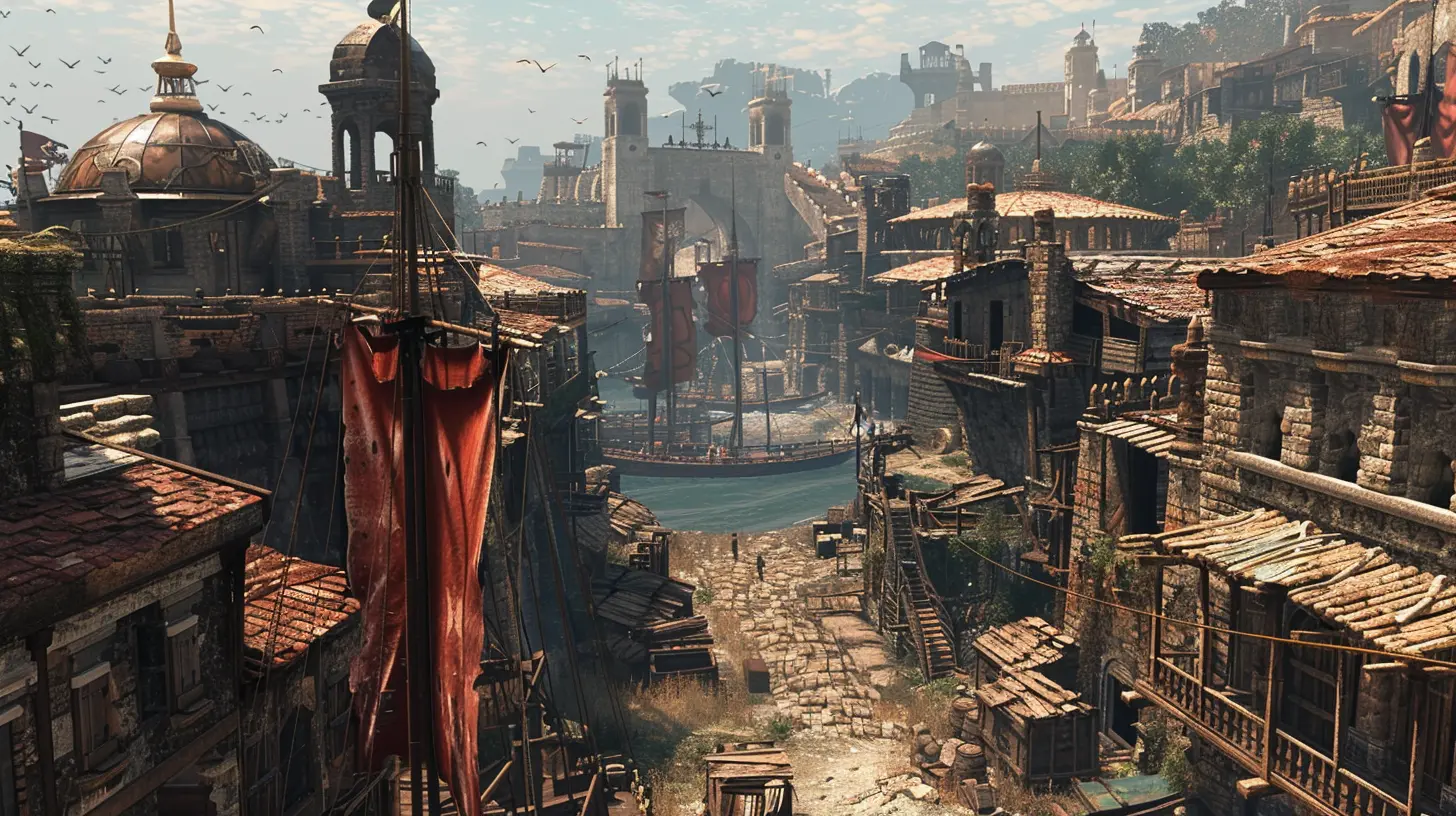
Why Creativity Matters in Gaming
Let’s get real for a second. Why does creativity even matter in video games? Isn’t gaming supposed to be just about fun?Well, sure, it’s fun—but it’s also so much more. Open world games tap into something deeply human: the need to create, explore, and experiment. They give us the freedom to try, fail, and try again without fear of judgment.
In a way, these games remind us of what it felt like to be kids, playing make-believe in the backyard. They invite us to let go of the rules for a while and see what happens when we think differently.
Plus, let’s be honest—there’s something incredibly satisfying about coming up with a solution or idea that feels uniquely yours. It’s like building a sandcastle on the beach and knowing no one else’s castle will ever look quite the same.
The Future of Creative Gaming
The trend of encouraging creativity in open world games isn’t slowing down anytime soon. With advancements in AI, procedural generation, and virtual reality, the possibilities are endless. We’re already seeing games like Starfield promise universes so vast that no player will ever explore them all.And as games continue to evolve, so will our ability to interact with these worlds in more meaningful, innovative ways. Who knows? Maybe one day, open world games won’t just let us create within their boundaries—they’ll let us shape the very worlds themselves.
Final Thoughts
Open world games aren’t just about quests, collectibles, or combat. They’re about freedom. They’re about pushing boundaries and seeing what’s possible. They encourage us to think outside the box, try new things, and, most importantly, have fun while doing it.Whether you’re messing around with physics, crafting your own unique story, or teaming up with friends to build something incredible, open world games celebrate creativity in ways no other medium can. They don’t just give us a place to play—they give us a blank canvas and the tools to paint our own masterpiece.
So the next time you boot up an open world game, remember: You’re not just a player. You’re a creator, an innovator, and maybe even a little bit of a troublemaker. And that’s exactly the point.
all images in this post were generated using AI tools
Category:
Open World GamesAuthor:

Jack McKinstry
Discussion
rate this article
3 comments
Anabella Cannon
This article brilliantly captures the essence of open-world games as a canvas for player creativity. I’ve often found myself lost in these virtual worlds, crafting unique narratives and experiences. It’s fascinating how the freedom to explore and experiment can lead to unexpected adventures, truly unleashing a personal brand of chaos.
June 2, 2025 at 2:53 AM

Jack McKinstry
Thank you! I'm glad you resonated with the concept of open-world games as a canvas for creativity. Your experience highlights the magic of exploration and personal storytelling in gaming!
Stephanie Monroe
Endless possibilities fuel player creativity!
May 26, 2025 at 3:40 PM

Jack McKinstry
Absolutely! Open world games truly empower players to explore, innovate, and express their creativity in limitless ways.
Rylan McNeely
Open world games are a canvas for creativity, where players can craft their own adventures and express unique stories! Embrace the chaos, explore limitless possibilities, and let your imagination soar—every choice you make adds to the vibrant tapestry of gaming!
May 22, 2025 at 2:47 AM

Jack McKinstry
Absolutely! Open world games truly empower players to create their own narratives and experiences, making each adventure uniquely personal. It's all about embracing that freedom!
